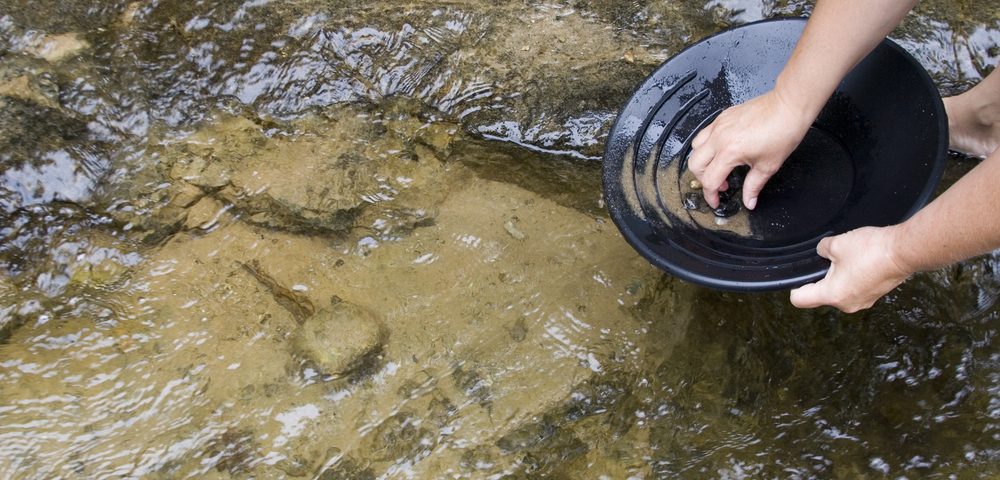Our Students ROCK: Jacob and Charles Talk Geology Research
Our Students ROCK: Jacob and Charles Talk Geology Research








Oliverian’s year-old Geology Research Group may be young, but it’s already opening the doors to countless opportunities for Oli students.
What happens when you step into nature’s classroom? You may just strike gold. That’s exactly what happened to Oli student Jacob Genga.
Jacob and fellow science enthusiast Charles Handler are the two ambitious students at the helm of this year’s Geology Research Group, led by science teacher and Dean of Studies Dr. Peter Tice. Jacob’s initial interest in geology was sparked by Oliverian alum Jonathan Pines’s presentation at the 2018 Rochester Mineralogical Symposium. When the Geology Research Group reopened for the 2018-2019 school year, Jacob knew he wanted in.
For Charles, who describes himself as someone without an initial “huge interest in geology,” it was the opportunity to do a hands-on research project that caught his eye. It didn’t take long for this to spiral into something bigger. “I found myself just having a great time, learning about geology and examining so many cool things,” he says.
The two spent nearly 10 months out in the field conducting research and preparing to present at the Rochester Mineralogical Symposium this past April. For both Charles and Jacob, it was an experience they’ll take with them as they move into their senior year at Oliverian.
Digging Into the Results
Jacob turned to his surroundings for inspiration when deciding what to focus his research on. “The White Mountains are our backyard here at Oli,” he says. “I wanted to understand more about the gold tucked into this landscape —- is it pure? Where does it come from? What does it say about gold from older formations, like the Appalachian Mountains? These were the questions I asked myself.”
After months spent sifting through the river beds, Jacob landed a small sample he could analyze using an electron microscope. The results? A piece comprised of 99 percent gold and one percent silver. The pureness of this local sample surprised Jacob, especially when compared to the more varied composition of samples often found in many popular gold regions, like Argentina.
Jacob rounded out his presentation data with insight garnered from Jonathan’s 2018 research. “We both examined many of the same rivers and rock formations close to campus,” says Jacob. “As more students get involved, we’ll be able to build on each other’s findings and have a better understanding of the geology surrounding our school. That’s pretty awesome.”
Like Jacob, Charles also found strikingly pure samples, only this time gold wasn’t part of the equation. He began noticing that garnet and magnetite were bountiful in the area while out on gold expeditions with Jacob and Dr. Tice. He decided to take a closer look and focus his research on the compositional changes between garnet and magnetite found at varying spots along the river. “I expected to see distinct differences between the minerals I collected upstream and those found miles downstream,” explains Charles. “But that wasn’t the case. My findings showed that the samples were extremely pure, no matter where they were from. This was really surprising, and something we’ll definitely want to look into further.”
Stepping Up On Stage
The hours spent outdoors and in the lab culminated at the Rochester Mineralogical Symposium, where both Charles and Jacob were invited to share their eye-opening findings. The students found the experience thrilling, rewarding, and of course, slightly intimidating.
“This was the first time I’ve received the opportunity to present in front of hundreds of doctors — people who’ve worked in the field of geology for longer than I’ve been alive,” says Jacob. “But nerves aside, it was great. Scientists came up to me after asking all about gold in New Hampshire.”
For Charles, the presentation was a proud moment. “I had all the normal nerves of someone who’s about to public speak,” he says. “But I felt confident in my data. It was exciting to share all of this research and hard work with so many others.”
Paving the Path Forward
Moving into their senior year, Charles and Jacob are in the midst of deciding how to spend their final semesters at Oli. Their time in the Geology Research Group has opened new doors giving them each a fresh perspective on the world of science.
“It was a really maturing process,” explains Charles. “We read all the science textbooks, but we never really stop to consider how it all gets written. Now we know firsthand.”
